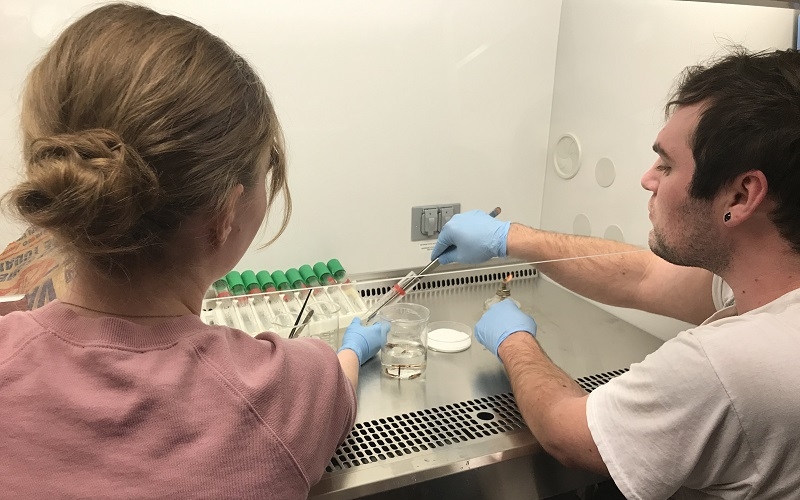Students in Dr. Judy Roe and Dr. Larry Feinstein’s Plant Biology lab had the opportunity to help out with a long-term research project underway in northern Maine. Students assisted in tissue culturing native beech trees that show signs of resistance to neonectria, a fungal disease that corrupts the bark and eventually kills the tree. Beech is an important hardwood in the woods industry. There are some trees that appear to be resistant and the intent is to clone them. This research work is being conducted by Randy Martin, Director of the Central Aroostook Soil and Water Conservation District (CASWD), in partnership with UMPI. Martin recently served as a guest speaker in the class and facilitated the tissue culturing.
Neil Thompson, a forestry instructor at the University of Maine at Fort Kent, helped in tracking down clear beech in the Deboullie region and has offered to have a trial grow in their forest when the clones are ready. Resistant plant material is being collected from Scraggly Lake region, Deboullie, and Easton. Cultures will be taken from up to 60,000 trees to be grown, for one season, in a high tunnel, after which the clones will be planted in trial plots on land that Seven Islands manages. These trees will be monitored for years to come, as this particular disease affects trees that are 10 to 15 years old. Martin said he hopes to plant the trees on steep, clear-cut slopes and allow them to grow with the native, neonectria-infected trees to prove, or disprove, that the clones are in fact resistant.

